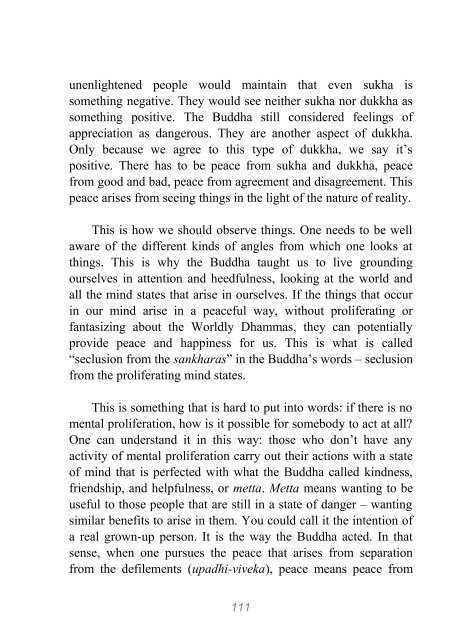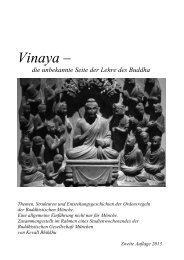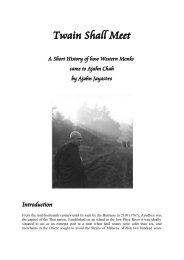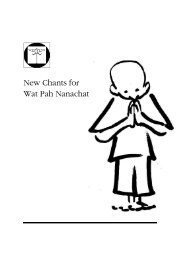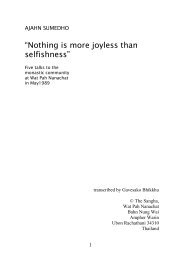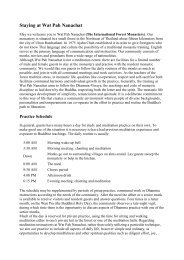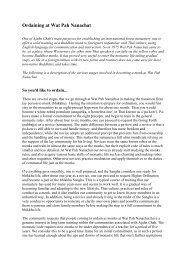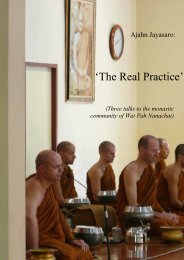Luang Por Liem: The Ways of the Peaceful - Wat Pah Nanachat
Luang Por Liem: The Ways of the Peaceful - Wat Pah Nanachat
Luang Por Liem: The Ways of the Peaceful - Wat Pah Nanachat
You also want an ePaper? Increase the reach of your titles
YUMPU automatically turns print PDFs into web optimized ePapers that Google loves.
unenlightened people would maintain that even sukha is<br />
something negative. <strong>The</strong>y would see nei<strong>the</strong>r sukha nor dukkha as<br />
something positive. <strong>The</strong> Buddha still considered feelings <strong>of</strong><br />
appreciation as dangerous. <strong>The</strong>y are ano<strong>the</strong>r aspect <strong>of</strong> dukkha.<br />
Only because we agree to this type <strong>of</strong> dukkha, we say it’s<br />
positive. <strong>The</strong>re has to be peace from sukha and dukkha, peace<br />
from good and bad, peace from agreement and disagreement. This<br />
peace arises from seeing things in <strong>the</strong> light <strong>of</strong> <strong>the</strong> nature <strong>of</strong> reality.<br />
This is how we should observe things. One needs to be well<br />
aware <strong>of</strong> <strong>the</strong> different kinds <strong>of</strong> angles from which one looks at<br />
things. This is why <strong>the</strong> Buddha taught us to live grounding<br />
ourselves in attention and heedfulness, looking at <strong>the</strong> world and<br />
all <strong>the</strong> mind states that arise in ourselves. If <strong>the</strong> things that occur<br />
in our mind arise in a peaceful way, without proliferating or<br />
fantasizing about <strong>the</strong> Worldly Dhammas, <strong>the</strong>y can potentially<br />
provide peace and happiness for us. This is what is called<br />
“seclusion from <strong>the</strong> sankharas” in <strong>the</strong> Buddha’s words – seclusion<br />
from <strong>the</strong> proliferating mind states.<br />
This is something that is hard to put into words: if <strong>the</strong>re is no<br />
mental proliferation, how is it possible for somebody to act at all?<br />
One can understand it in this way: those who don’t have any<br />
activity <strong>of</strong> mental proliferation carry out <strong>the</strong>ir actions with a state<br />
<strong>of</strong> mind that is perfected with what <strong>the</strong> Buddha called kindness,<br />
friendship, and helpfulness, or metta. Metta means wanting to be<br />
useful to those people that are still in a state <strong>of</strong> danger – wanting<br />
similar benefits to arise in <strong>the</strong>m. You could call it <strong>the</strong> intention <strong>of</strong><br />
a real grown-up person. It is <strong>the</strong> way <strong>the</strong> Buddha acted. In that<br />
sense, when one pursues <strong>the</strong> peace that arises from separation<br />
from <strong>the</strong> defilements (upadhi-viveka), peace means peace from<br />
111


